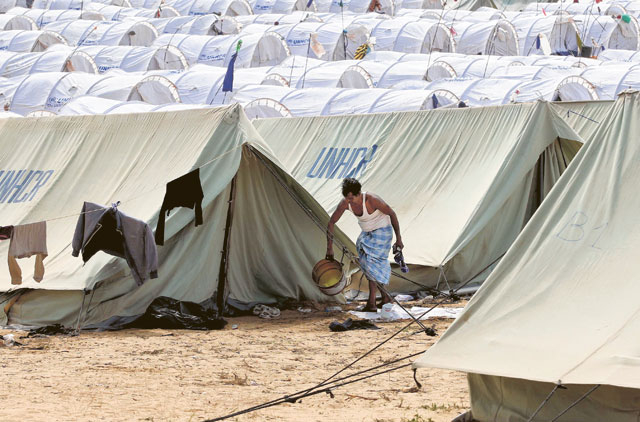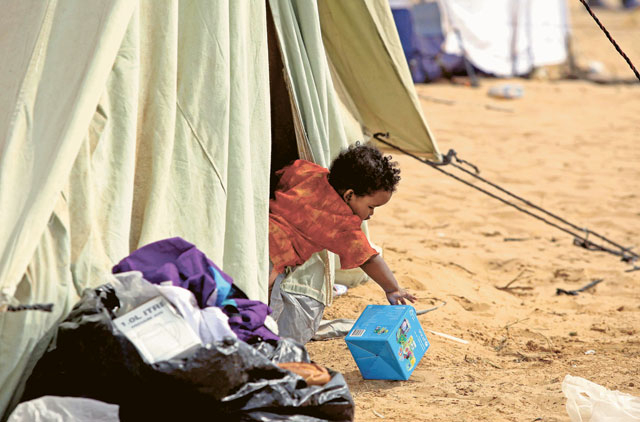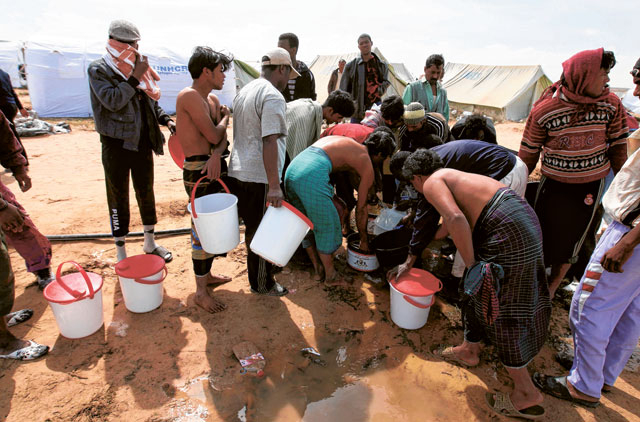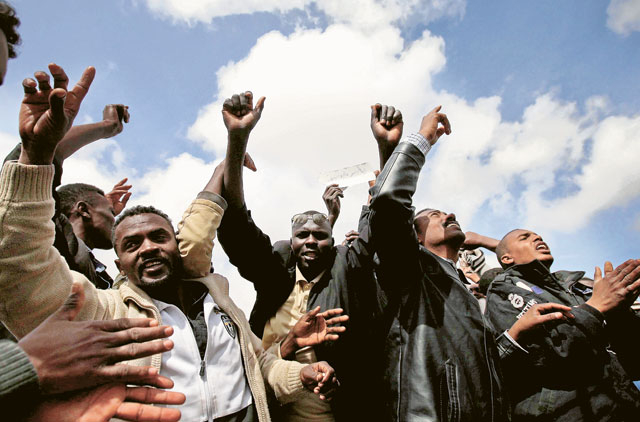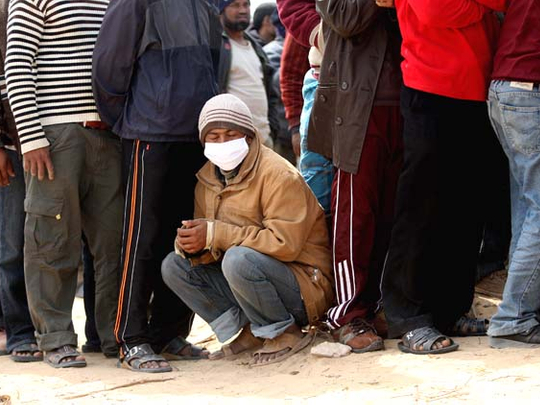
Ras Jdir, Tunisia: The United Nations asked the UAE to help relieve the burden of its camp in Ras Jdir, where hundreds of displaced people are living in cramped situations, a senior UN official said on Friday.
"We wish the UAE will provide accommodation to families from the UN camp in Choucha, Tunisia," said Gerhard J.W. Putman-Cramer, Principal Humanitarian Adviser of the UN Office for the Coordination of Humanitarian Affairs.
Putman-Cramer said the UAE may host 1,000 members of families, which will relieve the burden of the UN camp and help utilise the UAE camp optimally.
"I am a big fan of the UAE, which is known for helping people in their time of need. The UAE camp is beautifully done and hosting stranded families will relieve the pressure of the UN camp," said Putman-Cramer, who is also chairman of the International Scientific Advisory board of the Dubai International Humaintarian Aid (Dihad).
The UAE will host the eighth Dihad - 2011, which will take place from March 28-30 in Dubai, he said.
The conference will explore how new technologies that impact humanitarian and development operations.
Putman-Cramer said the flow of people fleeing Libya was relatively stable but included increasingly large percentage of Bangladeshis.
As many as 120,000 people, mainly foreign migrants, have crossed from Libya into Tunisia since February 20, Tunisian officials said. Many have been repatriated in an international effort but thousands remain in temporary camps facing growing problems of hygiene.
Stranded
But more than 13,000 Bangladeshis and 2,000 from African countries remain stranded in Choucha as their government lacked the funds to evacuate them back home to safety, said Lieutenant Colonel Malek Maihoub, director of civil defence at Mdenein governorate.
Workers stranded in a UN camp in Choucha, about 5 km from the Libya-Tunisi border, complained they lack access to adequate food and drinking water and sanitation services.
Putman-Cramer admitted food distribution and sanitation are challenges "but these are being addressed".
"There were long queues for food, but now the provision of food is outsourced to caterers and more distribution points have been set up," he said.
Dr Gilbert Gaeenall, team leader of the UN Disaster Assessment and Coordination team, said the camp has grown from 5,000 people to 10,000 to 15,000 and providing meals for this number is a big task.
He said adequate provision of sanitation services to stranded people was a challenge, too, but the situation was improving.
Abdul Rahman Ebrahim Bin Abdul Aziz, head of the UAE aid team in Tunisia, said the UAE contributed to the proper disposal of all waste in and around the camp, which is crucial to mitigate health risks and prevent epidemics.
UAE aid
Asked about the support the UAE is offering to Libyan and other Arab families who fled from Tripoli after the unrest, the UAE ambassador in Tunisia said he was informed by his Syrian counterpart that many Syrian families were on their way to Tunisia.
"We told the Syrian ambassador in Tunisia the UAE was ready to provide help to transport the Syrian people from the border between Libya and Tunisia to the UAE camp, where they will be offered food, shelter and medical care until they are repatriated to their home."
About Libyan families, the UAE ambassador said as many as 1.2 million Libyans are visiting Tunisia annually for medical care, beside tourists. "Certain hospitals in Tunisia are offering free medical care to the Libyans," Abdul Aziz said.
The ambassador said the UAE will provide the Ben Gardane Hospital, 23km away from the Libya-Tunisia border with medical supplies, equipment and an ambulance, stressing that the UAE aims at giving special support to the injured people.
Demonstrations
Inspired by the freedom call sweeping the Arab world, hundreds of Bangladeshi and Sudanese people on Friday demonstrated demanding their governments to immediately repatriate them from the UN camp in Tunisia.
The Sudanese demonstrators shouted slogans demanding that Sudanese President Omar Al Bashir help them go home.
Hamdan Ahmad Eid, 31, said he and 40 other fellow Sudanese were defrauded of their money and mobile phones by a bus driver when they were travelling to the Libya-Tunisia crossing point. "The driver told them if you keep you possessions, you will be robbed and as soon as they got off the bus, the Libyan driver sped away," Eid said.
Many displaced people appeared to be frightened and were unwilling to speak for fear of other members of their communities who are still living in Libya.
Many fleeing workers said they were stopped at checkpoints along the 100-mile road from Tripoli to the border and had their mobile phones confiscated by pro-Gadhafi forces who suspected the devices might contain footage of recent events in Libya.
"They took my phone, and all my cash," said Noor Siraj Al Deen, 43, a Sudanese driver who arrived in Tunisia earlier this week.
Thousands of foreign workers fleeing the unrest in Libya have made their way to Choucha camp, near Libya's border with Tunisia.
Bangladeshi, Nigerian, Somali or Sudanese refugees at the UN Choucha camp, no matter what their nationality may be, all tell almost the same story: that they were forced to flee the threat of a civil war, leaving behind their jobs or businesses that allowed them to send home money.


